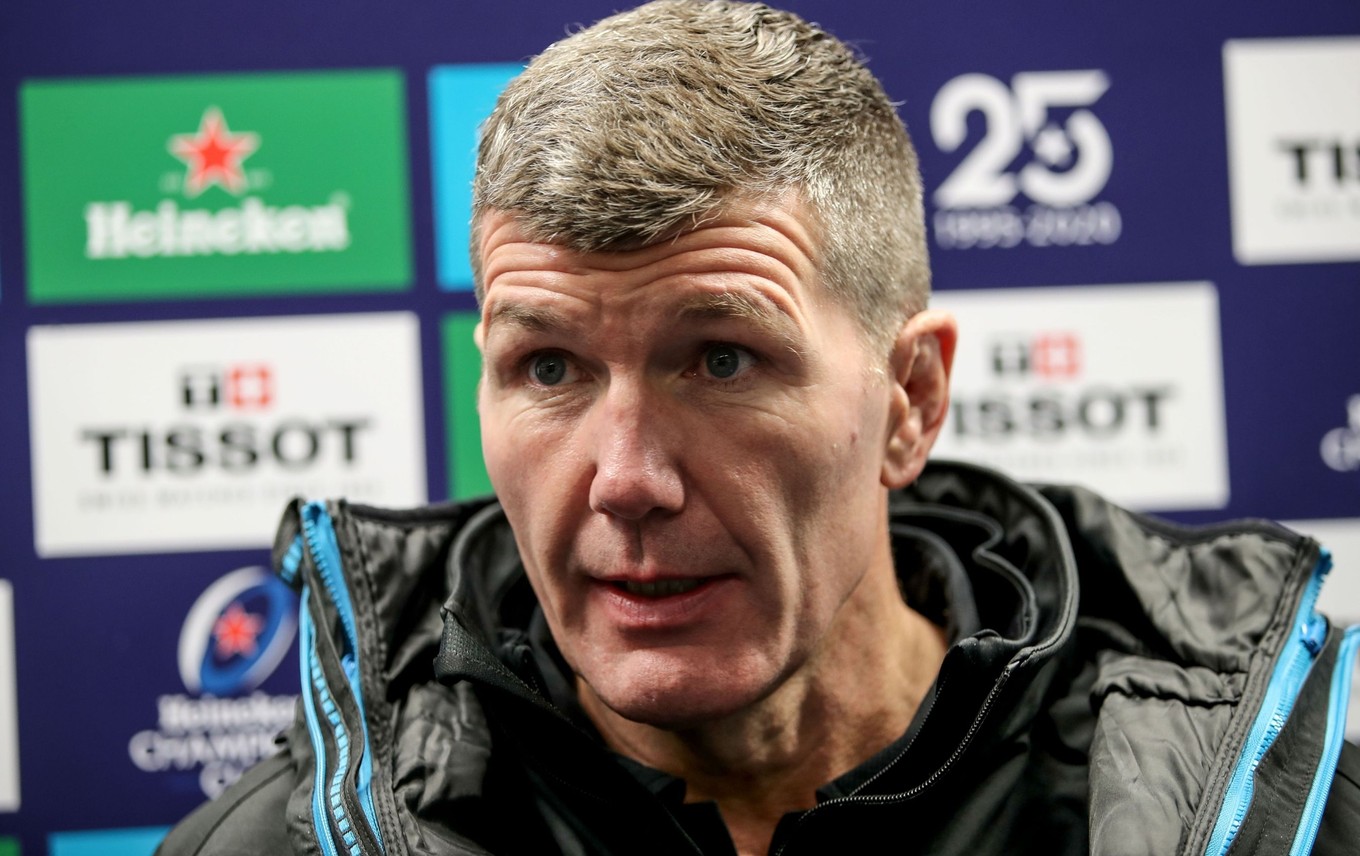Baxter outlines broader vision

By Mark Stevens
20/9/20
Exeter Chiefs Director of Rugby, Rob Baxter, believes success in this season’s Heineken Champions Cup can help take his ambitious club to new levels in the future.
In recent years, the Chiefs have ably demonstrated this strengths at domestic level, reaching four successive Premiership Rugby finals, and lifting the crown for the first time in 2017 against Wasps.
However, displaying their strengths amongst Europe’s elite has proved more troublesome and only once before today have Devon’s finest advanced into the last eight of the Champions Cup.
On that occasion, a last-gasp conversion from Wasps fly-half Jimmy Gopperth, sent them crashing out of the competition.
Today, though, marks a grand occasion for the Chiefs, who since rugby restarted last month, have won six out of seven games in the Premiership.
Celebrating ten years since their elevation into the top-flight, it’s been a remarkable journey for Baxter and his team, whose first outing in European competition ended in defeat at home to Montpellier in October 2010.
Since then, there have been highlights, of course, but it’s not until this current campaign where the Chiefs have really showed their colours, advancing from the pool stages unbeaten.
“The bigger picture [of European success] is the more sponsors you can bring in, the higher profile those sponsors can be, and the bigger fixtures all have an influence on where you want to go as a club,” Baxter said. “We have plans to increase the capacity of Sandy Park by 2,000 or 3,000 as quickly as we can, and to make sure we can host big games here if we get involved in them.
“There have been a few experiences that have been good, but there have also been a few that have hurt us as well. The Wasps quarter-final was one of the games of the season and to lose with a conversion last thing was tough. The big mistake we made that year was our first game away to Ospreys when we did some really odd things.
“We went away to Leinster [in 2018] and were in control for large parts but it got away from us. That was frustrating because we were playing well that year. On the whole we have had challenging groups.
“This is our first year we have been top seeds, and we have been relatively inexperienced compared to the teams who regularly enter the top eight. If you look at the age range of our squad now, we are getting to 26 to 27 in the average age of our front-line 28 players. Having been to the last four Premiership finals means you have also been in four Premiership semi-finals. It all culminates over a period of time.”

